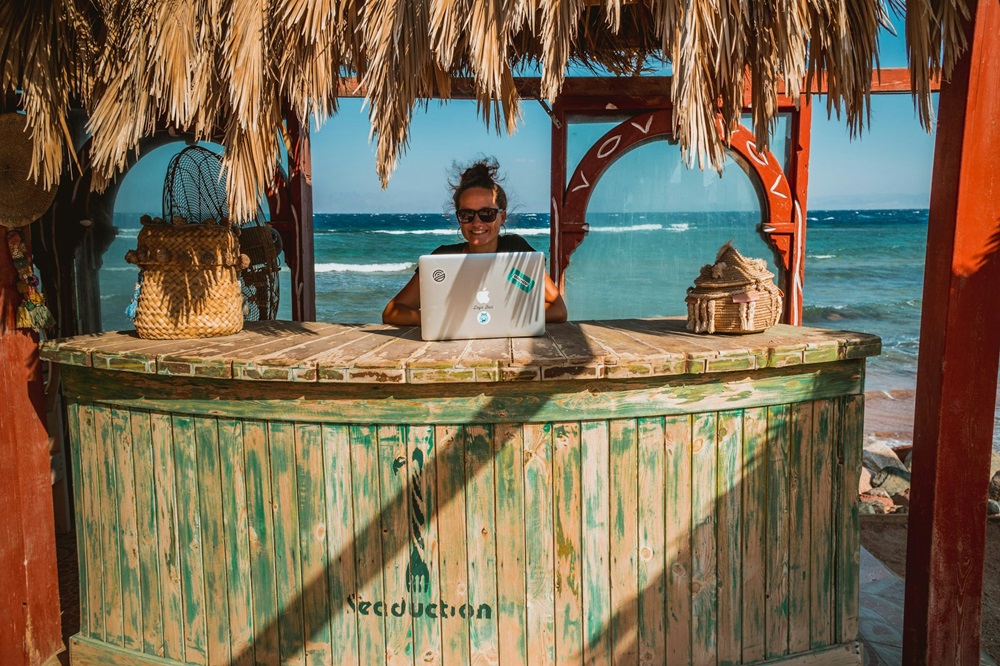With remote work becoming more accepted, and the world increasingly interconnected, many Americans are choosing the digital nomad life. Living abroad while working remotely offers the allure of new cultures, vibrant cities, new friends and adventures, and a great quality of life. Becoming an American digital nomad overseas is also a financial opportunity, however financial planning is essential. In this article, we outline some essential financial strategies for American digital nomads, focusing on key areas to ensure financial stability and minimize your tax bill so you can make the most of your new life abroad.
Visas and residency permits
If you’re going to live and work remotely in one country rather than travel to multiple countries, it’s important to obtain an appropriate residency visa for your new country. Different countries offer various visa options for American digital nomads:
Digital nomad visas: 66 countries around the world offer digital nomad visas in 2024. Italy, Spain, Greece, Thailand and Portugal have recently joined the trend started by Estonia, Barbados, and Costa Rica. These visas allow Americans to stay for a time period, often one year, that you can then renew if you can prove that you have remote income.
Tourist visas with extensions: Some countries allow you to enter on a tourist visa and then apply for extensions or a different visa category once you’re there.
Freelance or self-employment visas: Countries such as Germany offer visas for freelancers and entrepreneurs.
In general, it’s advisable to research the specific requirements and limitations of the visa you choose and apply well in advance of your planned move.
Banking and financial accounts
Setting up a local bank account in your new country is normally necessary for managing your day-to-day expenses, paying bills, and receiving income locally. Many nomads start with either a mulitcurrency account, or an online bank account such as Wise, N26 or Revolut, but once you’re ready to open a bank account in your new country, you’ll need to obtain a local tax identification number and research and gather documents such as your proof of local address, visa, and often proof of income or employment.
It’s normally OK to keep your US bank account too, however check with your bank their policy on having non-resident clients before you move. In case you need to change banks, it is easier to do this while still a US resident.
Access to US investment accounts
American digital nomads often assume that they can maintain US brokerage accounts with their investment portfolios and retirement accounts, however, many US brokerage firms won’t maintain clients who don’t reside in the US.
Short-term digital nomads who maintain a permanent US address can often keep their US brokerage accounts active. For those planning extended stays abroad, it is beneficial to consult with an expat-specialist investment adviser or financial planner who can guide you on where and how to invest as a remote worker overseas while optimizing your tax liability.
When living abroad, you can maintain (and often contribute to) US pension plans, ensuring continued growth and compliance with US tax regulations.
Currency transfers
When transferring money between the US and other countries, using a specialist currency broker like Moneycorp or platforms like Wise for smaller transactions can save you significant amounts compared to using traditional banks. These services offer better exchange rates and lower fees. Additionally, your expat financial advisor might assist you in transferring money internationally through your brokerage platform, providing another efficient option for managing your finances abroad.
Tax planning and compliance
As a US citizen, you are required to file US taxes on your worldwide income, regardless of where you live or work. If you meet the tax residency criteria in another country, you may also be liable for local taxes. Effective tax planning is essential to ensure compliance, avoid double taxation, and minimize your tax liabilities. Here are some key considerations:
Tax residency abroad: Rules for tax residency status are different in each country, but are often determined by the number of days you spend in a country or whether it’s your main base or where you work. As a tax resident, you’ll typically be subject to local income tax on your worldwide income.
Tax treaties: The US has tax treaties with many countries, however as a US citizen, you still have to file US taxes every year and claim tax credits or other provisions such as the Foreign Earned Income Exclusion to avoid double taxation..
Filing requirements: US citizens must continue to file federal tax returns annually, regardless of their residency. Additionally, you must report foreign bank accounts (FBAR) and financial assets (FATCA) if the value of your combined balances meets certain reporting thresholds to comply with US rules.
Foreign Earned Income Exclusion: Many American digital nomads can reduce their US tax bill by claiming the Foreign Earned Income Exclusion, which allows you to exclude up to $126,500 (for 2024) of your earned income from US taxes. Consulting with a US expat tax professional can help you understand your options and minimize your tax liability.
Foreign Tax Credit: If you pay taxes to a foreign government on income earned abroad, you may be eligible for the Foreign Tax Credit. This credit allows you to offset the amount of foreign tax paid against your US tax liability, potentially reducing your overall tax burden.
Social security contributions: If you are working remotely for a US employer, you may still need to pay US Social Security taxes. However, some countries have Totalization Agreements with the US to prevent double contributions.
Foreign investments and businesses: Owning certain foreign investments such as mutual funds or ETFs or a foreign-registered business can trigger complex US reporting requirements and potential tax liabilities. Professional guidance is recommended to navigate these complexities effectively.
Health insurance
Many American digital nomads purchase international health insurance to protect against unforeseen medical expenses. These policies can cover medical expenses in a particular country or worldwide, depending on your plans. Despite potentially higher costs, these policies offer broad protection no matter where treatment is received.
Some countries have a public healthcare system. Research the system in your host country well though, as it may not be available for a period when you first move, or it may not be high quality, or it may involve paying a fee.
Additionally, many countries require proof of health insurance coverage as part of the visa application process.
Establishing a flexible budget with a contingency fund
For digital nomads, especially freelancers, income can vary month to month, and living expenses can fluctuate significantly depending on the destination. Therefore, it’s important to create a budget that accounts for these uncertainties and includes a buffer for unexpected costs. Here are some key steps to establish an effective but flexible budget:
Assess your past income: Review your earnings from the past 1 to 2 years. If your income is inconsistent, use the month or quarter with the lowest income as the baseline for your budget. This conservative approach ensures that you can manage your finances even during lean periods. Also, research living costs in the places where you’re planning to live.
Include headroom: Build in headroom for unforeseen expenses. This could be anything from emergency medical costs to unexpected travel expenses. Having a financial cushion helps you stay prepared for surprises without compromising your financial stability.
Prioritize flexibility: Design your budget to be adaptable. Prioritize essential expenses and be ready to adjust discretionary spending based on your current financial situation. This flexibility allows you to navigate income variability and changing living costs with greater ease.
Build an emergency fund: Many American digital nomads choose to establish an emergency fund as a financial safety net to cover unexpected expenses, medical emergencies, or periods of income volatility. Aim to create an easily accessible fund equivalent to at least three to six months’ worth of living expenses.
Final thoughts
In conclusion, by planning ahead and maintaining a proactive, adaptable approach, you can create a robust financial plan that accommodates the particular challenges faced by American digital nomads. Seeking advice from tax and financial advisors with expertise in expat and cross-border finances will also help you ensure you remain optimized and compliant as you work and travel overseas.
If you have any questions about financial planning or investing as an American living abroad, get in touch.
This article is for informational purposes only; it is not intended to offer advice or guidance on legal, tax, or investment matters. Such advice can be given only with full understanding of a person’s specific situation.





